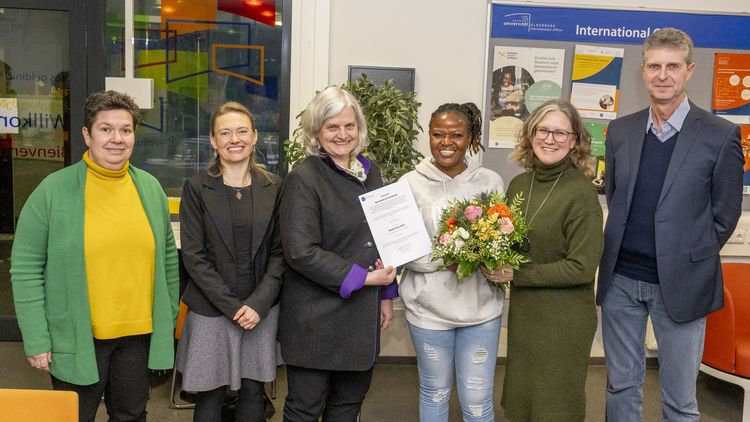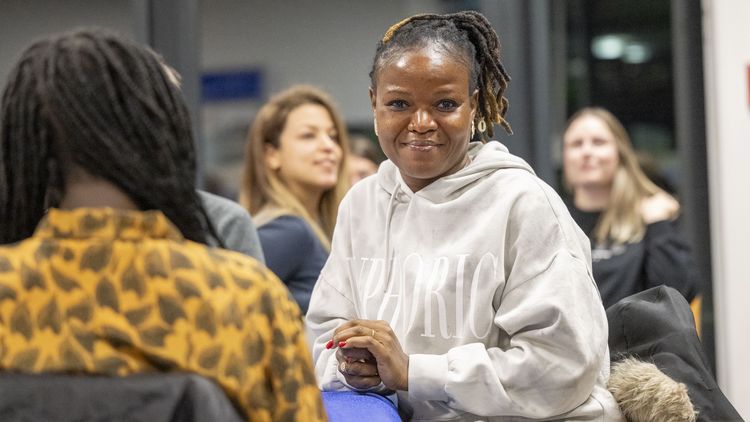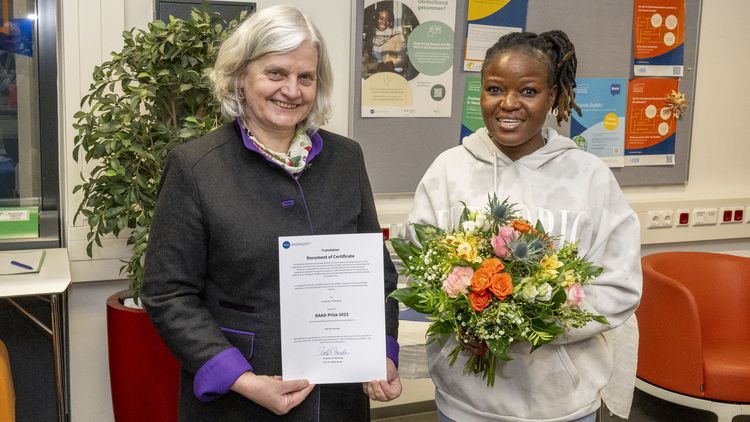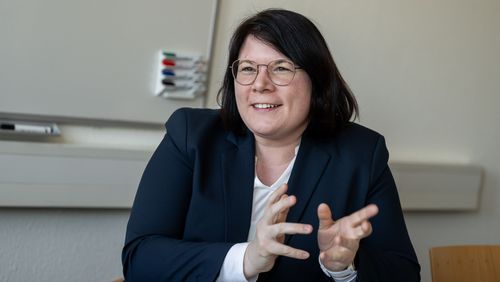Doctoral candidate Adenike Adenaya has been awarded the DAAD prize for outstanding achievements by international students for the year 2023. Besides her academic research, she is committed to society in many different ways.
Outstanding, creative and well-organised – these are the words most often used to describe Adenike Adenaya by those who know and work with her. For her academic achievements and social commitment, she has now been honoured with the German Academic Exchange Service (DAAD) Prize for outstanding achievements of international students at the University of Oldenburg.
“I am very happy and grateful for the recognition,” says Adenaya, who is currently a doctoral candidate at the Institute for Chemistry and Biology of the Marine Environment (ICBM). “I also think that the prize is an encouragement for other international students to get involved,” she adds.
The microbiologist not only focuses on an unusual research topic – the effects of antibiotics on marine bacteria in the tiny uppermost layer of the sea surface. She is also involved in various voluntary activities, such as the International Office’s Buddy Programme. “I benefitted from this programme myself when I came here, so I also want to help other international students settle in in Oldenburg,” she says.
The path into science
In addition, Adenaya runs a blog on societal issues she cares about, such as health and education in her home country of Nigeria. “There are a lot of problems in Nigeria”, Adenaya says. “I want to write about them, but also take action.” That is why, besides to her research, she got involved in a project at the university that aims to provide online teaching material to schools in countries such as Nigeria and South Africa.
In this context the Vice President for Academic Careers, Equal Opportunities and International Affairs, Prof. Dr Katharina Al-Shamery, met Adenike Adenaya for the first time. According to Al-Shamery, Adenaya is truly outstanding. “We need people like you at our university,” the Vice President said during the award ceremony.
For Adenike Adenaya, however, choosing an academic career wasn’t the most obvious thing to do: “I come from a family with a low level of education; I’m the first one to go into science.” She did so because, when her father died of tuberculosis, she realized that her mother didn’t have any understanding of infectious diseases. “So, I decided to study microbiology in Nigeria; I really wanted to help people.”
But after graduating from the University of Ibadan, Nigeria, she couldn’t get a job in the field in her home country. To make ends meet, she started working in the banking sector. “But I wasn’t really fulfilled”, she says. So she saved up money and applied to various master’s programmes in Germany – and was accepted in Oldenburg.
An inspiring personality
“Coming here in 2018 was really by chance,” Adenaya says. “But I’m very happy about it. I like the inclusivity here – in my research group and beyond. Whenever I showed my interest, I was accepted.”
Indeed, her drive to keep learning new things has made a deep impression on Dr Mariana Ribas Ribas, one of Adenaya’s supervisors at the ICBM. “Adenike is an inspiring person and an excellent scientist,” she says. In turn, working together with Ribas Ribas during her master’s degree encouraged Adenaya on her academic path.
In 2021, she wrote her own PhD proposal and, at the same time, secured funding from the Catholic Academic Exchange Service (KAAD) – something which is “quite unusual”, according to her co-supervisor at the ICBM, Prof. Dr Thorsten Brinkhoff. By investigating the presence of antibiotics in the thin surface layer of the ocean and trying to find their effects on the bacterial communities, Adenaya has opened up a completely new research field, he adds.
Making a difference
However, the doctoral candidate is not only focused on her research. She is also currently enrolled in an online programme Master of Public Health. “I am interested in both marine environmental science and human health and the interplay between the two,” says Adenaya. Deepening her knowledge of health seems a logical step for her – even if it means working night shifts to study after spending her day in the lab at the ICBM.
But Adenaya is determined to keep going – despite the challenges she may face along the way. “I try to focus on the positive. And I want to stay in science and eventually have my own research group and follow my own research questions,” she says. As a scientist, she hopes to make a positive difference in society.






